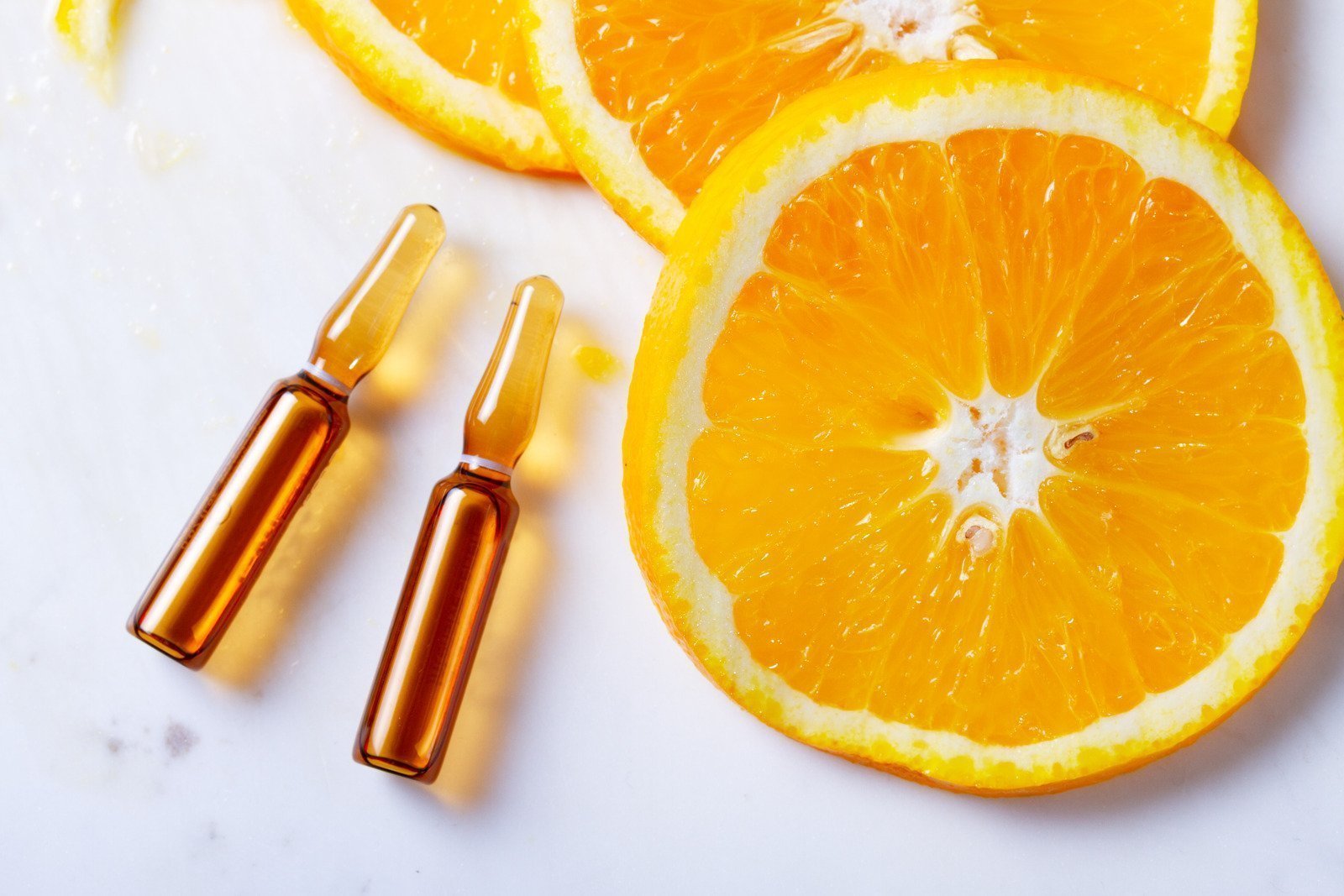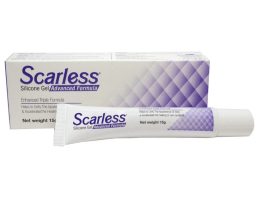Vitamin C, also known as ascorbic acid, is a vital nutrient known for its antioxidant properties and role in collagen synthesis. When incorporated into scarless silicone gel, Vitamin C significantly enhances scar healing and improves skin appearance. This article delves into the multifaceted role of vitamin C in scarless silicone gel.
Properties of Vitamin C
1. Antioxidant
Vitamin C, ascorbic acid, is widely recognized for its powerful antioxidant properties. As an antioxidant, it is crucial in neutralizing free radicals and protecting cells from oxidative damage. This function is particularly vital in skin health and scar healing.
Neutralizing Free Radicals
Free radicals are unstable molecules that can damage cells, proteins, and DNA. They are generated through various environmental factors such as UV radiation, pollution, and even normal metabolic processes.
How Vitamin C Neutralizes Free Radicals
- Vitamin C donates electrons to free radicals, stabilizing them and preventing them from causing further damage.
- By neutralizing free radicals, Vitamin C helps maintain the integrity of skin cells and supports the healing process.
Protecting Collagen and Elastin
- Importance of Collagen and Elastin
- Collagen and elastin are essential proteins that provide structure and elasticity to the skin.
- Free radicals can break down collagen and elastin, leading to wrinkles, sagging, and impaired wound healing.
- How Vitamin C Protects Collagen and Elastin
- Vitamin C’s antioxidant action protects collagen and elastin fibers from oxidative damage.
- By preserving the structure of these proteins, Vitamin C supports skin elasticity and strength, which is vital for healthy scar formation.
Enhancing Skin Barrier Function
- Skin Barrier and Oxidative Stress
- The skin barrier protects against environmental aggressors, and oxidative stress can weaken this barrier.
- How Vitamin C Enhances Skin Barrier Function
- Vitamin C’s antioxidant properties strengthen the skin’s natural barrier by protecting against oxidative stress.
- A robust skin barrier supports overall skin health, including healing scars and preventing hyperpigmentation.
Synergy with Other Antioxidants
- Working with Other Antioxidants
- Vitamin C works synergistically with other antioxidants, enhancing the antioxidant defense system.
- This synergy provides more comprehensive protection against free radical damage.
2. Collagen Synthesis
Collagen is the most abundant protein in the human body, providing structure and strength to the skin, bones, tendons, and other connective tissues. Vitamin C is essential in collagen synthesis, making it vital for skin health and healing wounds and scars.
The Role of Vitamin C in Collagen Synthesis
- Cofactor in Collagen Production
- Hydroxylation Process: Vitamin C is a cofactor for the enzymes prolyl hydroxylase and lysyl hydroxylase, responsible for the hydroxylation of proline and lysine residues in collagen.
- Stabilizing Collagen Molecule: This hydroxylation stabilizes collagen’s triple-helix structure, ensuring strength and stability.
- Enhancing Collagen Quality
- Improved Cross-Linking: Vitamin C aids collagen fibers’ cross-linking, enhancing their strength and resilience.
- Organized Structure: Vitamin C helps form organized and aligned collagen fibers by promoting well-structured collagen, creating a more natural and aesthetically pleasing scar.
- Stimulating Collagen Production
- Fibroblast Activation: Vitamin C stimulates fibroblasts, the cells responsible for producing collagen, enhancing their activity and proliferation.
- Wound Healing Support: Increased collagen production supports wound healing, reducing the healing time and improving the appearance of scars.
Impact on Different Types of Scars
- Hypertrophic Scars: Vitamin C can help prevent collagen overproduction by regulating collagen synthesis, leading to raised scars.
- Atrophic Scars: Vitamin C’s support of collagen production can help fill atrophic scars, where collagen is lost.
Vitamin C in Scarless Silicone Gel
- Synergistic Effect: When combined with silicone gel, Vitamin C’s role in collagen synthesis complements the gel’s hydrating and occlusive properties, creating a conducive environment for optimal scar healing.
- Enhanced Effectiveness: The integration of Vitamin C enhances the overall effectiveness of scar treatment, addressing various aspects of scar healing, from appearance to texture.
3. Anti-Inflammatory
Inflammation is a natural and essential response to injury, infection, or irritation. However, excessive or prolonged inflammation can impede healing and lead to complications, including abnormal scarring. Vitamin C, known for its antioxidant properties, is also vital as an anti-inflammatory agent, especially in skin health and scar healing.
The Anti-Inflammatory Mechanism of Vitamin C
- Reduction of Inflammatory Mediators
- Inhibiting Pro-Inflammatory Cytokines: Vitamin C can inhibit the production of pro-inflammatory cytokines, such as interleukin-1 (IL-1) and tumor necrosis factor-alpha (TNF-alpha), reducing inflammation at the cellular level.
- Modulating Inflammatory Response: Vitamin C helps modulate the body’s inflammatory response by controlling these mediators, ensuring it is effective without becoming excessive.
- Enhancing Immune Cell Function
- Supporting Immune Cells: Vitamin C helps immune cells like neutrophils and macrophages function, which play a role in inflammation and healing.
- Clearing Debris: By enhancing immune cell function, Vitamin C aids in the efficient clearing of debris and damaged cells, reducing prolonged inflammation.
- Protecting Against Oxidative Stress
- Oxidative Stress and Inflammation: Oxidative stress can exacerbate inflammation, leading to a vicious cycle that impedes healing.
- Antioxidant Protection: Vitamin C’s antioxidant properties help break this cycle, reducing oxidative stress and inflammation.
- Impact on Scar Healing
- Controlled Healing Environment: Vitamin C reduces excessive inflammation, creating a more controlled healing environment conducive to healthy scar formation.
- Preventing Abnormal Scars: Controlled inflammation helps prevent abnormal scars, such as hypertrophic or keloid scars, which can result from a prolonged or excessive inflammatory response.
- Vitamin C in Scarless Silicone Gel
- Synergistic Effect: When combined with silicone gel, Vitamin C’s anti-inflammatory role complements the gel’s hydrating and occlusive properties, enhancing overall scar healing.
- Targeted Scar Treatment: The integration of Vitamin C provides targeted treatment for scars, addressing inflammation, one of the critical factors in scar development and appearance.
Role in Scarless Silicone Gel
Enhancing Scar Healing
- Stimulating Collagen Production: Vitamin C’s role in collagen synthesis helps form healthy scar tissue, reducing the appearance of raised or hypertrophic scars.
- Improving Skin Elasticity: Vitamin C enhances skin elasticity by promoting quality collagen, making the scar more pliable and natural-looking.
Protecting and Nourishing the Skin
- Skin Barrier Protection: Vitamin C helps maintain the skin’s natural barrier, protecting it from environmental factors that can slow healing.
- Hydration Synergy: Combined with silicone gel’s hydrating properties, vitamin C nourishes the skin, keeping it moisturized and healthy.
Complementing Silicone Gel Properties
- Synergistic Effect: Vitamin C complements silicone gel’s occlusive and hydrating properties, creating a conducive environment for optimal scar healing.
- Enhancing Effectiveness: Combining vitamin C with silicone gel enhances the overall effectiveness of the treatment, addressing various aspects of scar healing.
Safety and Considerations of Vitamin C
While generally considered safe, especially in topical applications like scarless silicone gel, there are some considerations and precautions to be aware of.
Safety Aspects
- General Safety
- Well-Tolerated: Vitamin C is generally well-tolerated when applied topically, with few reported side effects.
- Non-toxic: It is considered non-toxic and is often used in various skin care products, including those for sensitive skin.
- Potential Irritation
- Skin Sensitivity: Some individuals may experience mild irritation or sensitivity to Vitamin C, especially in higher concentrations.
- Patch Testing: Performing a patch test before the full application can help identify any sensitivity.
- Stability Concerns
- Oxidation: Vitamin C can oxidize and degrade when exposed to air and light, losing effectiveness.
- Packaging and Storage: Proper packaging and storage are essential to maintain the stability and efficacy of Vitamin C in products like scarless silicone gel.
Considerations in Specific Applications
- Scar Treatment
- Concentration: The concentration of Vitamin C in scar treatment products should be carefully formulated to provide efficacy without increasing the risk of irritation.
- Combination with Other Ingredients: Vitamin C’s effectiveness can be enhanced with other ingredients like silicone gel, but compatibility and synergy should be considered.
- Wound Healing
- Timing and Application: Healthcare providers should guide the timing and method of applying Vitamin C to wound healing to ensure optimal results.
- Cosmetic Considerations
- Skin Type and Concerns: When using Vitamin C in cosmetics, individual skin types and concerns should be considered to ensure suitability and desired outcomes.
Conclusion
Vitamin C’s incorporation into scarless silicone gel represents a thoughtful convergence of science and skincare. Its antioxidant, collagen-boosting, and anti-inflammatory properties align perfectly with the goals of scar treatment, enhancing the healing process and improving the appearance of scars.
The synergy between vitamin C and silicone gel offers a comprehensive approach to scar care, addressing the multifaceted nature of scar healing. Vitamin C’s role in scarless silicone gel underscores its value in skincare and medical applications, from stimulating collagen production to protecting skin cells and reducing inflammation.
Vitamin C’s role in scarless silicone gel provides insights into its potential benefits and applications, guiding informed choices for those seeking effective scar treatment options. Its integration into scar care products reflects a growing recognition of combining traditional treatments with innovative ingredients to achieve the best possible outcomes.
-
Product on sale
 Scarless Silicone GelOriginal price was: $ 43.00.$ 34.95Current price is: $ 34.95.
Scarless Silicone GelOriginal price was: $ 43.00.$ 34.95Current price is: $ 34.95.



